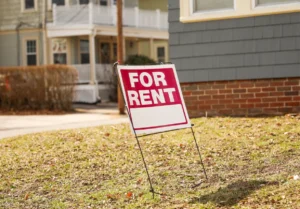The Art of Negotiation in Real Estate Investing
 Real estate investing can be an extremely lucrative business if done right. One of the most important skills for a successful real estate investor is the ability to negotiate effectively. Negotiation is truly an art form that involves strategy, communication skills, critical thinking, and the ability to read people. Master negotiators in real estate are able to consistently buy low and sell high, maximizing their profits.
Real estate investing can be an extremely lucrative business if done right. One of the most important skills for a successful real estate investor is the ability to negotiate effectively. Negotiation is truly an art form that involves strategy, communication skills, critical thinking, and the ability to read people. Master negotiators in real estate are able to consistently buy low and sell high, maximizing their profits.
In this blog post, we will dive into the intricacies of negotiation in real estate investing to help you hone your skills and become a smarter investor.
Understanding Your Walk Away Point
Before entering any negotiation, it’s critical that you determine your “walk away point” ahead of time. This is the maximum price you are willing to pay or the minimum price you are willing to accept. Having a clear walkaway point prevents you from overpaying or accepting less profit than you hoped to achieve.
Factor in All Costs and Risks
As you set your walk away point, make sure to consider all the costs and risks involved in the deal. Factor in the purchase price, projected rehab costs, carrying costs, closing costs, potential rental income, and anticipated resale value. Run the numbers to determine the maximum price that would allow you to reach your profit goals.
Give Yourself the Power to Walk Away
Setting a walk away point gives you the power to be able to safely walk away from a deal that does not make financial sense for your business. Do not let fear of missing out cloud your judgment – stick to the math.
Gathering Intelligence and Assessing Motivation
To become a skilled negotiator, you need to understand the other party’s position as much as possible. Gather intelligence by asking questions and listening closely to not just what they say, but how they say it. Learn about their goals, financial situation, timeline, and overall motivation.
The more information you have about the motivations, constraints, and psychology of the other party, the better you can craft win-win scenarios. Look for opportunities to help them achieve their goals while still getting what you want from the deal.
Key questions to ask:
* What is the timeline or sense of urgency on their end?
* Are they motivated by price or terms?
* Are there contingencies or closing conditions they need?
* What tradeoffs might appeal to them?
The answers will give you the insight you need to negotiate effectively.
Get a Free Multifamily Loan Quote
Access Non-Recourse, 10+ Year Fixed, 30-Year Amortization
Lead with Win-Win Scenarios
Experienced negotiators understand the importance of not revealing their best offer initially, nor do they rush towards a middle ground. This strategy often leads to suboptimal outcomes, with potential value left unexplored. Instead, successful negotiation involves proposing various win-win scenarios, where both parties feel they are achieving most of their objectives.
Present Creative Options
Offering a range of creative solutions is key in negotiation. By varying the elements of the deal – such as pricing, key dates, contingencies, and other terms – you can tailor packages that address the other party’s concerns while still meeting your essential needs. This approach of mixing and matching different deal components opens up avenues for solutions that are mutually beneficial.
Build Trust
Demonstrating an understanding of the other party’s needs and motivations through creative problem-solving builds a foundation of trust and cooperation. When parties see that their concerns are being thoughtfully addressed, they are more inclined to collaborate, leading to an outcome that maximizes benefits for all involved. This trust is crucial for successful, long-term negotiation outcomes.
Make the First Offer When Possible
Real estate negotiation veterans recommend making the first offer whenever possible. This allows you to anchor the negotiations in your favor. The first offer subtly sets the range for the conversation, so aim high or low depending on whether you are buying or selling.
Another advantage of making the first offer is that it immediately shows you are serious and knowledgeable. It also gives you more control over the back-and-forth conversation and better posture to ask questions and gather intelligence.
Make that first offer bold but believable. Ask the seller, “If we can agree on price today, what can you do on closing date?” Float creative ideas to build momentum.
Always Keep Negotiating
In negotiation, the process doesn’t end with a preliminary agreement. It’s important to keep the dialogue open and continue negotiating until the final contract is signed. New information or changing circumstances can emerge, offering additional opportunities to refine the deal.
Look for Improvements
A savvy negotiator knows that a deal is never truly final until closing. Use the period between the initial agreement and the closing to seek improvements in the deal. This can include negotiating over closing costs, contingencies, credits, or even achieving a lower price. It’s a time to reassess and potentially enhance the terms in your favor.
Smooth the Path to Closing
A well-negotiated deal not only benefits both parties but also facilitates a smoother and quicker closing process. Maintaining momentum and continually seeking ways to improve the deal can lead to a more satisfactory and efficient closure. It’s about keeping the end goal in sight and ensuring that the path to closing is as seamless as possible.
Know When to Walk Away
If the negotiations reach your walk away point, be ready to walk away. Never get emotionally invested or attached to any particular deal. There will always be another opportunity.
Walking away is an extremely powerful negotiating tool. When you are serious about leaving the deal, it often brings the other party back with a better offer. They now understand you cannot be pushed around.
It takes discipline to walk away from a deal you have put time into, but know your numbers and stick to your guns. Onward to the next deal that does meet your criteria!
Hone Your Skills Daily
Like any art form, negotiation requires purposeful practice on an ongoing basis. Look for opportunities to strengthen your skills during every real estate transaction and daily life scenarios.
When negotiating prices at the flea market, finalizing a home remodel contract, or working out homeowner’s association issues, apply your real estate investor negotiation principles.
The more you practice, the more instinctual your creative deal-making abilities will become. Soon you will be able to consistently close profitable deals other investors can only dream of.
Conclusion
The art of negotiation is a defining skill that sets apart the most successful real estate investors from their peers. By adhering to these guiding principles, you can consistently craft win-win scenarios, maximize your leverage, and refine a critical skill set essential in real estate investing. Mastery in negotiation not only enhances deal outcomes but also fosters long-term relationships and reputations in the industry. Embracing these techniques will undoubtedly elevate your real estate investing career to unprecedented levels. Negotiation skills are not just about closing deals; they’re about creating value and opportunities where others see none. This ability to see and create value will position you as a leader in the field, setting a standard for excellence and innovation in real estate investing.
Source: Sunrise Capital













 Accessibility
Accessibility